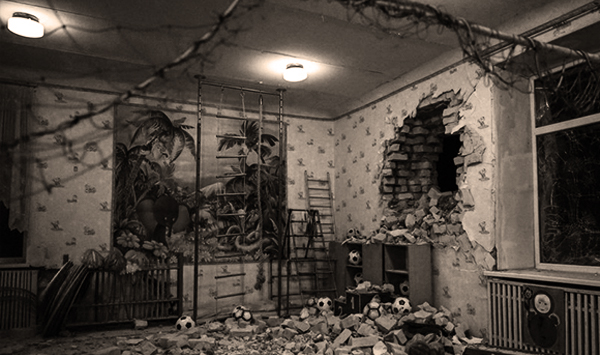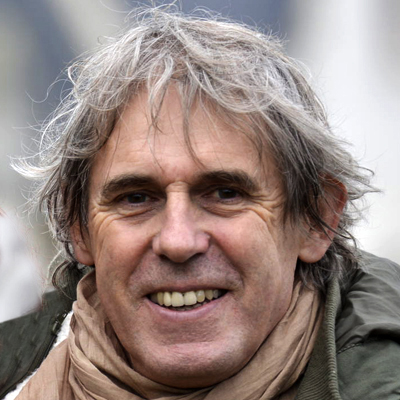Français | English
For the other articles see > SPECIAL ARCHIVE UKRAINE
Beginning a column on what is going on in the East, speaking about Ukraine after seeing and hearing on a flat screen a Russian autocrat whose mental health one can’t gauge exactly announcing he was putting on alert his nuclear dissuasion forces, appears like an endless task.
And yet, life goes on, the images stream by, activists carry on with an electoral campaign, sanctions rain down and in some areas of Ukraine, it’s snowing.
For over a week now many others like myself have had their eyes glued to the threat in the East either through social networks, through various media, or by taking to the streets. The recent switch over from the pandemic to racist discourses in the campaign had already been swift and jarring. The awakening of memories of border wars on the European continent, in Ukraine, is just as brutal.
Borders again acting as revealers of the questions financial capitalism pushed aside in the early 90s, when the Wall fell, in order to profit from the extension of globalization and financiarization on the European continent. Quick, quick, exploitation of labor cost differentials, quick the conquest of markets that were previously frozen. The European Union’s agenda, then dominated by “social democratic” political forces turned toward currency and commerce. That of those countries held bound by the iron rule of Stalin and his descendants, where mistreated peoples could only salve the wounds of their recent history seared by nazism and the holocaust while nationalisms were reborn and appetites grew.
I am among those who, in the 90s, considered the explosion of ex-Yugoslavia as alerting to the will of peoples to dispose of themselves in the face of nation-States, not in order to create new ones, but as areas in which to redefine common living spaces in Europe, respecting the long and complex history of each of these people. But what the European Union was then offering, disguised under a pseudo federal project in need of further examination, was an extension of a huge market and the implementation of its currency as an independent bank. The peoples of ex-Yugoslavia paid the cost for this.
An armed conflict between Croatian and Serbian nationalisms who then became allies against a Bosnia in which mixity had begun forging the notion of a possible future coexistence, could only be understood as favoring division against the extension of the Market. The very history of Bosnia, once part of the ex-Ottoman empire, also introduced a dimension that was soon presented as being of a religious nature. I do not intend to replay here the history and analysis of that war.
I would simply like to underline the fact that the shadow of Russia, then in the chaos of de-stalinization, already loomed over the region. The conclusion is known, as in all wars, the powerful had the final word. And Bosnia was carved out on quasi-ethnic lines, under the international tutorship of a rolling presidency, supposed to give an institutional form to the federation of Bosnia-Herzgovina. If you are curious, find out about what is going on over there at this very moment, and the way in which Serbian nationalists are proposing to secede once again, against what can only be called a reinforcement of a “Muslim nationalism” propelled by the agreements in lieu of a Bosnian solution. In short, that war was resolved as were the ones in former empires, according to the rules and functions ascribed to conquered zones. Kosovo’s fate was subsequently subjected to special NATO attention.
At the time, European social democracy at first first went so far as to frown on the will of a German reunification, through the voice of a certain François Mitterand who, no one seems to remember now, was still speaking during the siege of Sarajavo of “our friends the Serbs” while one Milosevic was busy massacring left, right and center.
Which only goes to show how, the priority in Europe at the time was in redefining common rules for the post-Cold War period. During the past thirty years, each people thus fiddled with its history, at the rhythm of its integration — or not — in the great market open to all winds.
In the former Easter zone countries, where the previous political leaders were removed from positions of responsibility, those who had accumulated wealth and economic controls rose to power, allied with the forces of repression of the former regime, often, this is true, with diverse circonvolutions tacked on. In short, these are the “oligarchs” we keep hearing about. And if at times, elsewhere than in Russia, they are pointed out as “official mafiosi” or “corrupt”, their original certificates are the same, hidden behind a grotesque mask of democracy.
Bien sûr, comparer le pouvoir en Roumanie, par exemple, et en Russie, serait hasardeux. Mais comparez les projets politiques des élites de ces pays serait aisé, et ils se situent tout autant dans le giron capitaliste, même si les systèmes de pouvoir varient. Et la fameuse “charte européenne” est de plus en plus souvent un chiffon de papier pour certains régimes dits aujourd’hui “membres de l’Union”.
Of course, comparing power in Rumania with that in Russia, for example, would be a tricky exercise. But comparing the political projects of the elites in these two countries would be easy since, in both cases, it sits squarely in the capitalist lap, even if the power systems vary. As for the famous “European charter” more often than not, it is treated as a mere rag by some regimes currently claiming to be “members of the Union”.
In 1973, when the blocks were confronting each other in the Cold War, a certain attempt was made to define the rules for peace and security in Europe. A document then called the “Final Act” of the Conference was signed in Helsinki. A number of famous opponents in the East used these texts in their struggle against the Stalinist stranglehold.
On November 21 1990, in the prolongation of the Helsinki agreement, and following the tumbling of the walls, 34 countries signed a charter in Paris that began with the following words:
“We, the Heads of State or Government of the States participating in the Conference on Security and Co-operation in Europe, have assembled in Paris at a time of profound change and historic expectations. The era of confrontation and division of Europe has ended. We declare that henceforth our relations will be founded on respect and co-operation.”
There then follows a list covering items such as the free circulation of humans, goods and merchandise, the development of cooperation, human rights and peace, conflict prevention… All of which is to be under the purview of what is henceforth to be known as the OSCE (Organization for Security and Co-Operation in Europe).
All of this forms a coherent whole with the European Council, created in 1949, where none of the North American countries are present however, although they are parties to the agreements in Helsinki and in NATO .
However, for all the importance of the judicial substrate this arsenal of treaties provides (linked to the European Court of Human Rights) it does not redefine for all that the diverses special arrangements established between nation States throughout the chaotic history of the 20th century and of its genocides.
The European capitalist project that aims at unifying a part of the continent around its financiarization and the benefits deriving from profit, one that is totally open on globalization, the division of labor, the razing resources, is busy forming undifferentiated consumers and alienated proletarians. One should not be surprised when in this market imperialist longings are nostalgically professed as they are in Turkey and in Russia. Through the exploitation of differentials in labor costs, and having produced some markets and consumers with an increased purchasing power, conflicts re-emerge concerning territories, resources and zones of influence, especially in a context where the battle around fossile energies, one that has ravaged the Middle-East, finds itself in a world-wide impasse.
Oh, right, I’m not really talking about NATO, am I? Is this because I’m keeping that devil for the end?
That scarecrow is a useful one these days, in order to choose one’s imperialist camp or throw one’s adversary into it during a debate. “To be or not to be in it. That is the question?” I’ll get to leftist “campism” later.
I remind you that my reflections “while waiting for the bomb” concern Ukraine, and I’m still far removed from it, especially since my reflection will probably also take a turn in the direction of Rojava.
And to save me from a number of side trips around “urban legends”, I recommend this indispensable article; it does the job of clearing eyes, noses and sinuses, especially for the Left and leftist fringe in the beyond, about Putin’s beloved “Ukrainian nazis”.
For the other articles see > SPECIAL ARCHIVE UKRAINE
Support Kedistan, MAKE A CONTRIBUTION.




